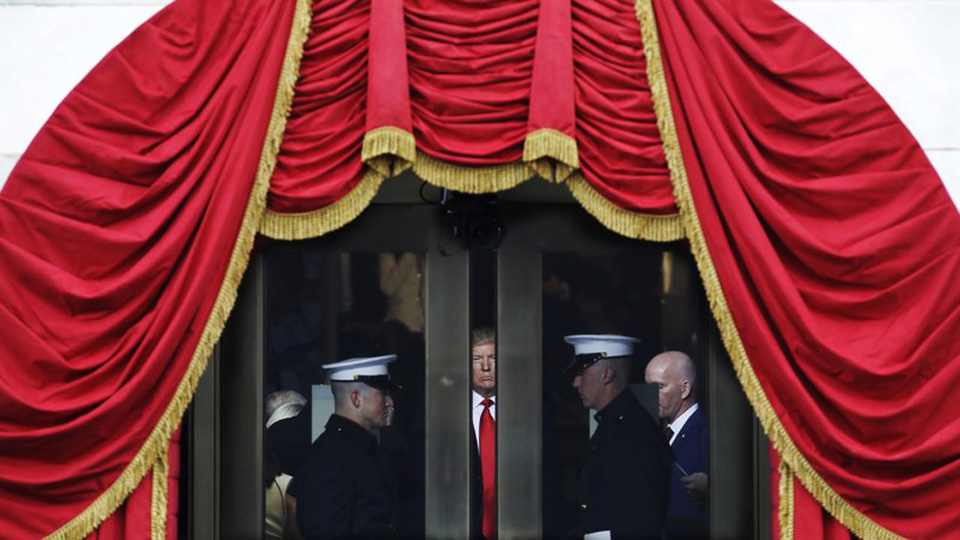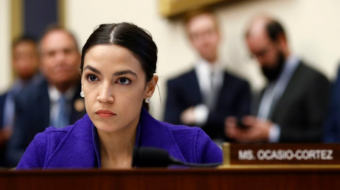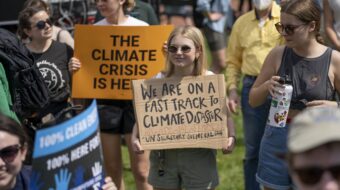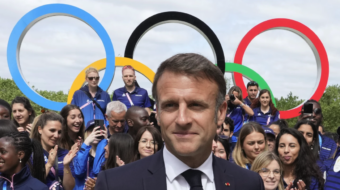
In his May 10, 2017 article on Alternet, Steven Rosenfeld asks, with good reason, “What if what Trump’s trying to hide is more about protecting his fortune than seeking Russian help to win the presidency?”
First, he notes that just before his firing Comey had been looking for more money to follow wherever the investigative trail had been leading him, presumably, like any FBI investigation, to places not predetermined and proscribed at the beginning of the investigation.
He also notes that numerous federal and state grand jury investigations and an investigation in the New York State attorney general’s office are underway.
It is not likely, especially since the New York investigators, at least, had already been looking at Trump business deals including possible money-laundering schemes, that all these investigations are limited to looking into allegations of Russian interference in the elections.
The firing of Comey, followed soon after by GOP Senate Majority Leader Mitch McConnell’s statement that there should be no independent investigator effectively slows down — if not throws a huge wrench into — the investigations of such matters and explains to a large extent why they may have happened.
The FBI, Rosenfeld notes, has special expertise in investigating business crime, both mob- and non-mob-related. So he asks: “What if the FBI investigation was heading into Trump’s mobster-connected business empire, including his partnerships with Russian oligarchs, where the president has broken racketeering, money laundering and organized crime laws? “
He cites James Henry, a former corporate lawyer and now an investigative reporter for D.C. Reporting.org: “This guy (Trump) is a mobster. He has all these dodgy business partners. He knew or should have known that they were involved in organized crime, money laundering and racketeering. That’s pretty hard to deny. We see the people he’s been in business with. We see the deals over and over again. It’s in plain sight…You could make a case on good old-fashioned criminal law if you had a prosecutor.”
Rosenfeld reminds us that Trump associates have been sued not just for failure to pay contractors but for massive tax evasion. Trump’s business associates have been sued, he notes, for tax evasion at a high-rise in So-Ho, where known Russian mobsters and oligarchs are co-owners with the president.
One of Trump’s partners, according to the article is Bayrock LLC, which helped build the So-Ho towers. That company hired Rudy Giuliani to create a shell corporation in the Netherlands which was exposed on Dutch TV as an international money laundering operation.
It will be difficult to scrape up non circumstantial evidence of collusion by Trump and his associates regarding the elections, which is why Republicans want the investigations to stay focused on just the 2016 elections. It is unlikely that a sophisticated intelligence gathering operation such as the one possessed by the Russians would leave open tapes or calls that could directly incriminate its people.
People in the news business digging into Trump’s business and mob connections however, are starting down a path that could much more easily end up destroying his presidency. It’s a path well travelled by the FBI and the firing of Comey puts a big roadblock on that path. It’s a path that could very likely lead to impeachment and even criminal prosecution of the president and his men.
Another interesting aspect of the Rosenfeld article is the author’s exploration of ideas imported from Russia that are also potentially worse than hacking of election campaign headquarters.
When the Soviet Union was destroyed vast land and mineral resources that were publically owned were stolen by private capitalists and ended up in the control of a handful of oligarchs. Rosenfeld notes, not unreasonably, that Trump is setting a similar stage via executive orders for similar land and resource grabs. He says too that some of Trump’s investors from Russia could end up with stakes in the newly freed–up mineral and land assets. It amounts to stealing democracy, land and minerals.
“This is a land grab,” said Henry. “If you don’t get that Putin and the Russians transferred a hell of a lot of wealth of the Russian government to a handful of 25 oligarchs. Right now there are five states in the U.S. that are roughly 80 percent or more owned by the federal government. Trump has just issued executive orders that have opened up a lot of that land, either to outright privatization or to mining deals like we’ve never seen before.”
As for why McConnell would go along with Trump it is noted that the senator received a million dollar contribution from the Russians. “There was a million dollar contribution to the Senate leadership PAC in the name of a New York company owned by Len Blavatnik,” Henry said. Blavatnik is a multi billionaire in Russia with enormous control over that country’s aluminum industry.
There is no way to tell yet how much of all of this was where Comey was going. But what we can tell is that election hacking is probably only the tip of the iceberg in this case. Much more potentially damaging to our democracy are the president’s ties to the Mafia, his illegal hiding of the names of his foreign investors, the reasons behind his refusal to release taxes, and the possibility that he has washed, as MSNBC’s Chris Matthews has suggested, tons of money through his casinos and other places. Add to that list the potential nefarious connections involving his massive land grabs. We are dealing here with a massive attack on our democracy aimed at concealing a criminal empire at the apex of which sits the president of the United States.












Comments